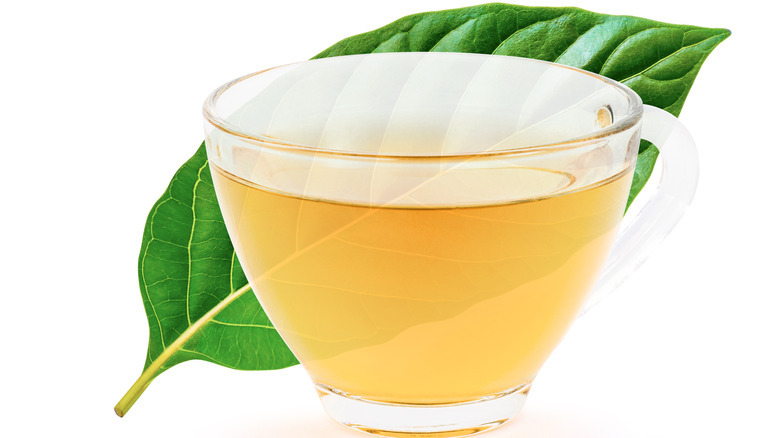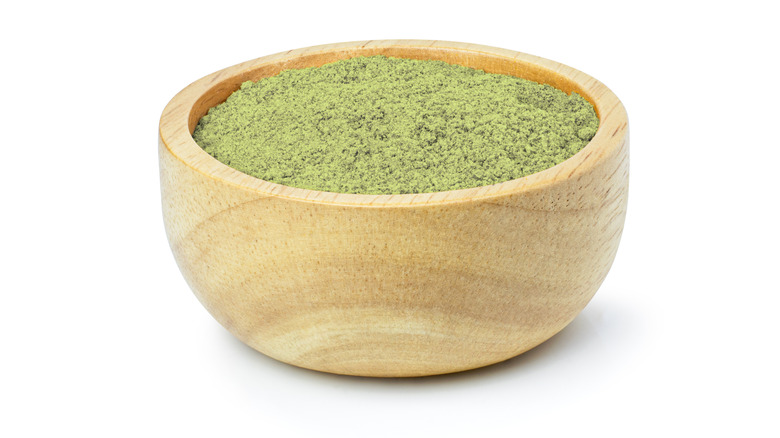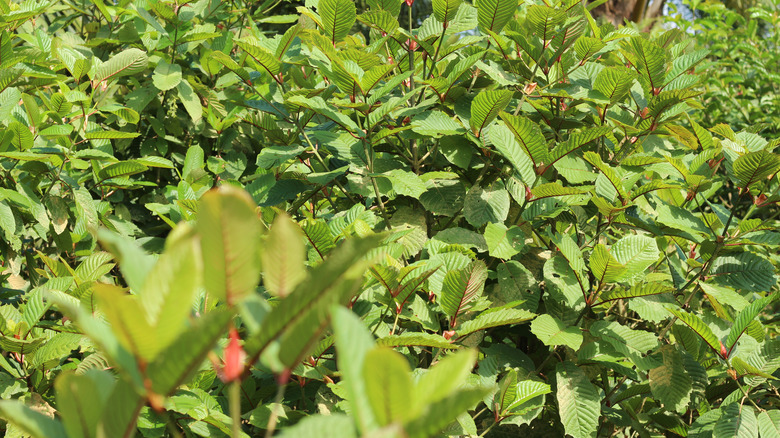What Is Kratom Tea And Can It Cause Liver Damage?
As the world wakes up to the benefits of healthy food, certain food and beverage trends have come to light more than ever before. One of those options? Kratom tea, a special kind of beverage that is brewed using leaves from the kratom plant. According to Health, the kratom tree is most commonly found in Southeast Asia. Here is a fun fact: Kratom is believed to be a natural stimulant. If consumed in excess, it can also end up acting as a sedative. Eeks.
As per Medical News Today, kratom (Mitragyna speciosa) has been around for more than a century. Also, its typical history has been somewhat controversial. People were known to chew on the plant's leaves in order to get high easily. Eventually, more folks started experimenting with the plant and brewing its leaves to consume tea. The kratom plant remains an important part of Southeast Asian culture, where it's often used to provide some relief from pain.
The health perks of kratom tea are up for debate
Kratom tea, as per some of its loyalists, can be a natural way to get rid of chronic pain. Researchers think that the tea allows your mind and body to relax in a way that's not too different from the effects of opium. In extremely tiny doses, it does something different entirely and makes you feel a bit energetic. Also, it's believed that some people turn to kratom in higher doses for conditions such as diarrhea, while others use small amounts to improve endurance.
According to Health, some people have even claimed that kratom has helped them kick their addiction to opium, while others say that it has been good at combating anxiety and depression. However, this hasn't been backed by science and no one is quite sure about the health benefits. It's uncharted territory, at best. Those who use it prefer to brew kratom leaves in boiling water or add some leaf powder to water for a quick beverage.
Kratom tea may not be totally safe to consume
The problem with kratom tea is that there simply isn't enough research to support its alleged benefits. It is often sold as a natural, herbal remedy, but is far from that. In fact, the Food and Drug Administration (FDA) specifically cautions people against consuming kratom tea. It states, "FDA is concerned that kratom, which affects the same opioid brain receptors as morphine, appears to have properties that expose users to the risks of addiction, abuse, and dependence."
As per Healthline, consuming kratom tea can also lead to side effects such as headaches, vomiting, dizzy spells, dry mouth, mood changes, constipation, and more. Some users may also experience heart palpitations, memory issues, and insomnia among other side effects. Its efficacy is so disputed that it is banned in certain countries, as per Medical News Today. Countries such as Romania, Poland, Ireland, and the Nordic and Baltic States prohibit the use of kratom tea.
Also, kratom tea has been linked to liver damage in the past. As per the American Association for the Study of Liver Diseases, kratom tea can potentially cause "severe liver injury," something that should definitely not be overlooked.
Kratom tea's production is not regulated
While kratom tea isn't a safe option as of now, there are other better alternatives that can work for you. According to Medical News Today, you can't go wrong with a classic hot cup of coffee, something that will wake you up and act as a mild stimulant without causing any dangerous side effects. In fact, caffeine has been linked to health benefits and is good for you in moderate amounts.
The bottom line is simple: It's wise to avoid kratom tea for now, considering that it's an unknown ingredient and its long-term outlook is not fully understood. As per Harvard Health, you'll be hard pressed to find credible details on things like how kratom is made and manufactured in the U.S., something that makes it even trickier to consume.
Also, adding to its controversial image, in 2018, the FDA was forced to issue a recall when questions were raised over salmonella contamination of food items that had kratom in them.



